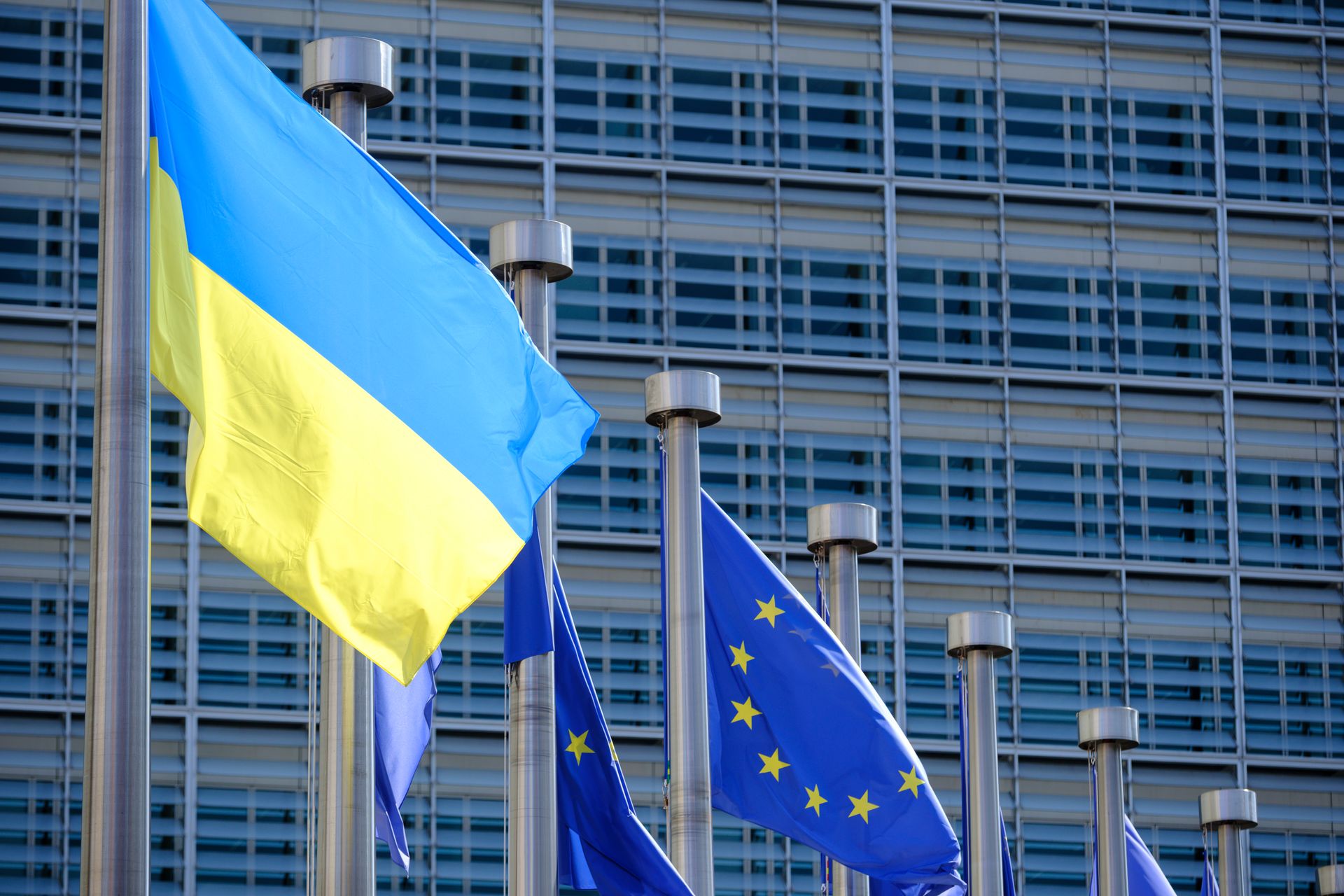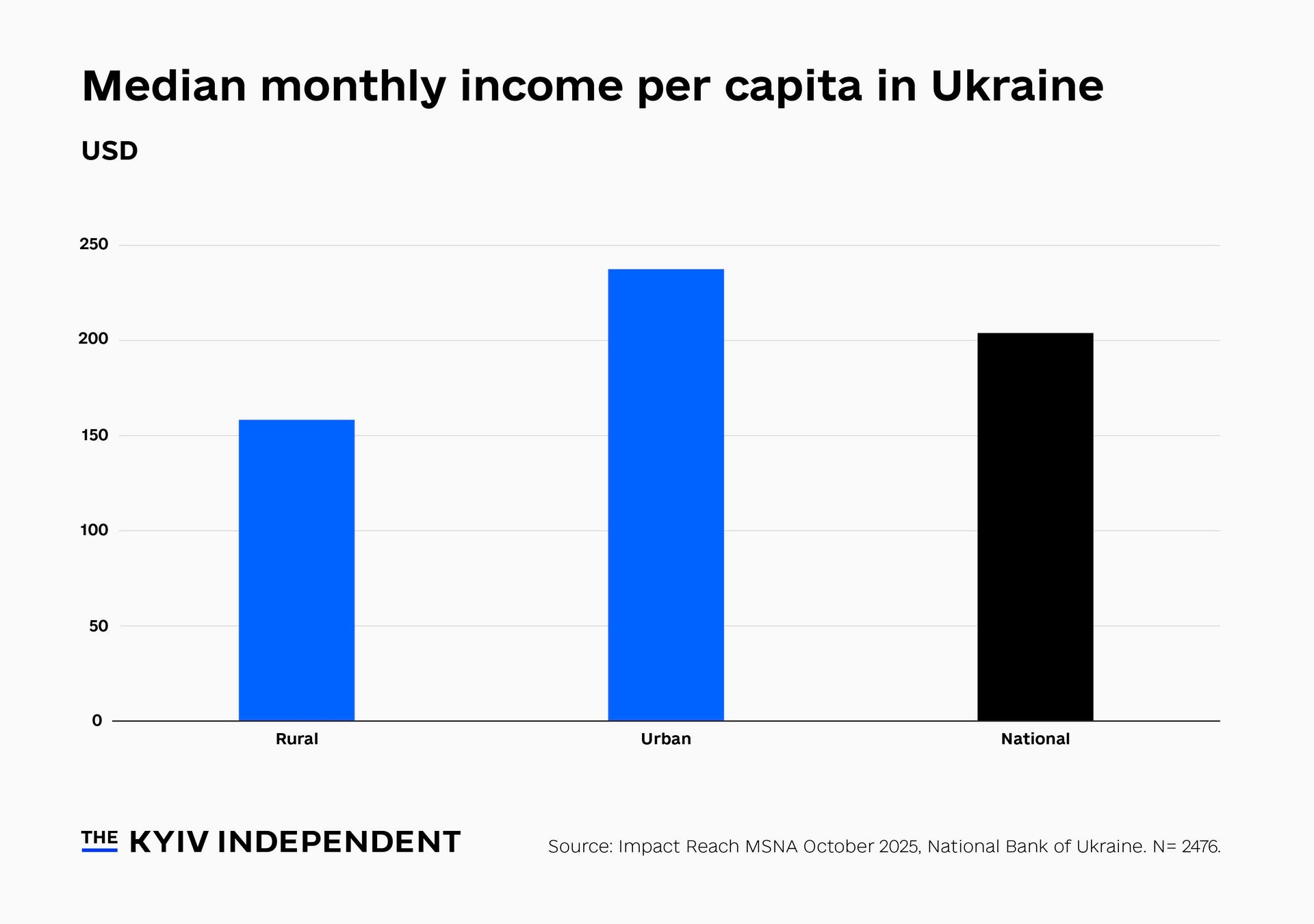'Catastrophic populism:' Critics push back against Zelensky's winter support package for Ukrainians

A winter support package proposed by President Volodymyr Zelensky's administration is facing strong criticism, with opponents calling it a populist scheme to boost the government’s dwindling popularity.
The government is preparing a series of support programs to help ease the economic burden on Ukrainians as the country enters what is expected to be a difficult winter of Russian attacks.
They include a Hr 1,000 ($24) one-time payment for all Ukrainians, 3,000 kilometers of free travel across Ukraine on the state-owned Ukrainian Railways during the off-peak season, and a Hr 6,500 ($154) payment for vulnerable citizens, like internally displaced people and low-income families.
The question from critics is whether the first two programs are a good use of funds from the anemic state budget while the war is ongoing.
It makes little financial sense to offer Hr 1,000 to everyone in the country, regardless of their circumstances, instead of focusing on the most vulnerable, Volodymyr Landa, head of investment screening at the Economic Security Council of Ukraine, told the Kyiv Independent.
The amount allocated from the state budget would be at least $450 million. The government has released conflicting estimates of how many it expects to apply for the Hr 1,000 payment, with the prime minister putting the figure at 10 million, while another minister put it at 15 million.
In a statement on its website, the government said it would allocate Hr 4.4 billion ($104 million) to distribute the Hr 6,500 payment to the most vulnerable. It is unclear how much the railway travel would cost the state.
With all of Ukraine's state revenue going toward the war effort, financing from its partners abroad holds up its budget, and they may not be happy with Kyiv spending the money this way rather than on more specific, urgent needs, Landa said.
"It's not an effective way to spend this money," he said.
"With a limited state budget, we should help only the people who really need it and give more money to the most vulnerable categories of people."
The government implemented a similar program last year, which saw over 14 million Ukrainians apply for the Hr 1,000 package — more than the government anticipated and initially planned for, Landa noted.
The package comes as Ukrainians face a daunting winter marked by blackouts and relentless Russian attacks on energy infrastructure and civilian areas. Russian aggression has pushed poverty rates to 37% across the country.
The new programs also come amid falling public opinion on the government and criticism of its failure to build enough fortifications around energy infrastructure. Holos Party MP and lawmaker Yaroslav Zhelezniak said the package is the government’s way of boosting its popularity.
"It’s stupid, catastrophic populism," he told the Kyiv Independent.
Instead of focusing on the battlefield, where troops are struggling to hold off Russia's advances around Pokrovsk in Donetsk Oblast, the government is more concerned about distant elections, Yevhven Mahda, executive director at the Institute of World Policy, a think tank, told the Kyiv Independent.
Svyrydenko pushed back against the allegations of populism during a briefing with journalists on Nov. 3, saying the government sees the package as support during the winter period. She added that Ukrainians could donate the money to the Armed Forces instead of using it on utilities or other basic expenses.
Only 4% of recipients donated their payments to the military, according to government estimates. Sixty-three percent of the funding was spent on utilities, and 17% on phone bills.
Svrydenko noted that the government will also provide Hr 16 billion ($380 million) to Ukrainian Railways next year to subsidize passenger travel. Companies, particularly in the metallurgy sector, currently pay high costs for commercial freight to keep costs low for passengers.
"The government provides financial support to Ukrainian Railways during this difficult time — taxpayer money — so citizens should receive something in return," said Svyrydenko about the 3,000 kilometer scheme.
Svyrydenko said that the program will fill up to 250,000 seats per month that would otherwise be empty, therefore not adding costs. But Landa points to the lack of details around the program, such as what exactly is defined as the off-peak season, as a sign that the government prematurely announced the program for short-term popular support.
"When they say it will cost nothing, that means they did not do the math. They will discover it later," he said.
"Subsidized railway journeys for poor people would be more effective than giving subsidies to everyone," he said.














